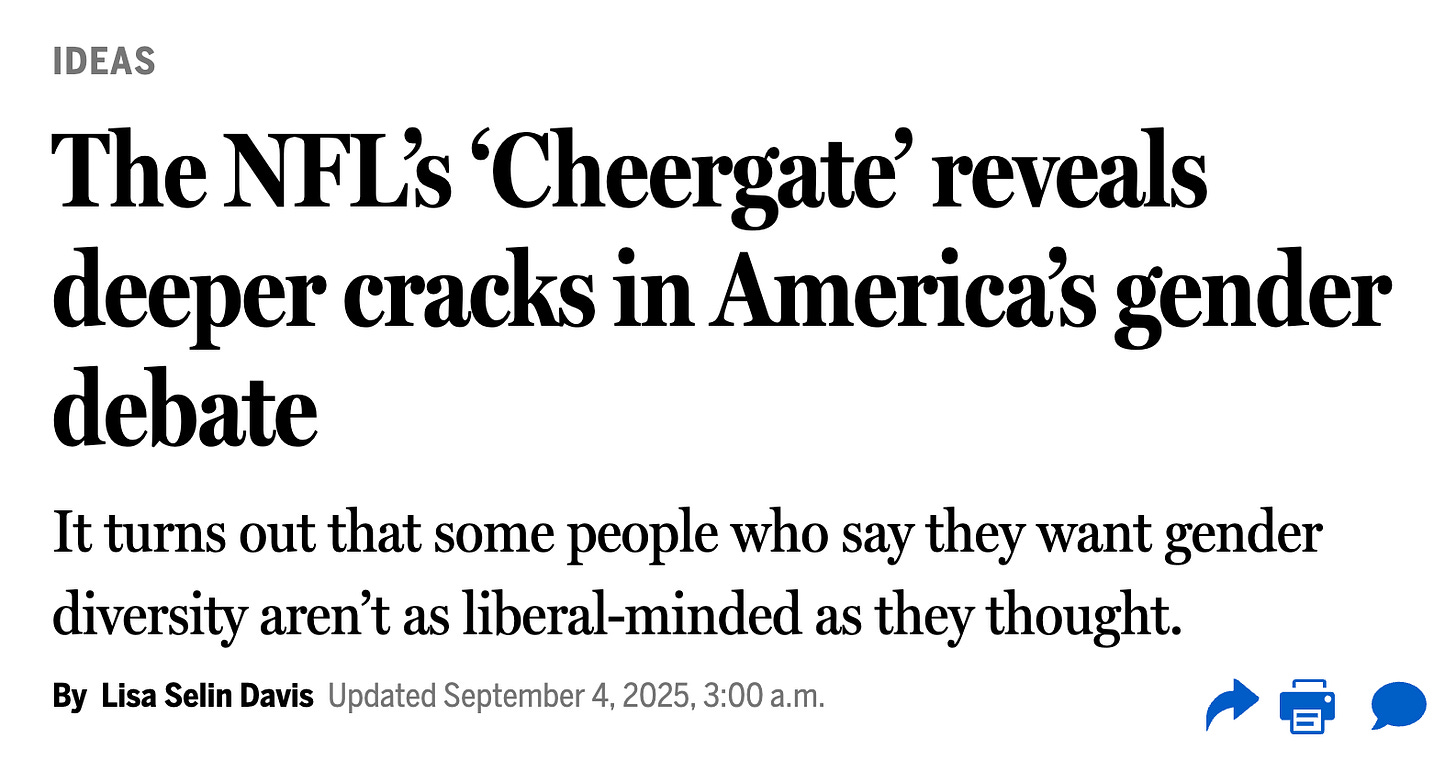Turns Out It's a Lot Harder to Support Gender Diversity than I'd Thought
Back to cheergate...in the Boston Globe
Two sexes, infinite genders personalities.
Sex is real, people are weird.
There’s no one right way to be a boy or a girl.
These have been my North Star phrases, and philosophies that I thought many in the gender resistance shared. But, as I will write about in coming weeks, I’ve come to see more and more people in the gender rabbit hole shift from wanting to create wiggle room to becoming increasingly rigid.
They have their reasons, I know. But the reality is that it’s very, very difficult to create a world with adumbrated boundaries, especially when we are deeply polarized and connecting via the fundamentally destabilizing technology of social media.
I wrote more about this for the Boston Globe. As always, I thank them for the opportunity. (Here’s an archived version, too.)




There are still second wave feminists, in their '70s now, who continue to insist that a lesbian with a masculine presentation, i.e. a butch lesbian, is performing a role that is oppressive to women because to dress like a man is a bid for male power. That the necktie is a phallic symbol. That a woman who puts on make-up, high heels and a too short skirt is submitting to control by the patriarchy. Those edicts pretty much ended feminism for the next generation. Let that be a warning to those wanting to demarcate gender presentation in increasingly rigid ways.
I am generally very much in favor of embracing gender nonconformity, for both men and women. Yet, I get why so many people didn't like this particular manifestation of it, and it rubs me the wrong way as well, although I have zero interest in American football. First off, most football fans who watch these cheerleaders probably have zero interest in seeing these guys perform their femininity in this context. Surely the people who made the decision to include them knew that, and did it anyway, knowing it would make many fans uncomfortable. So this feels like a clearly political move designed to make a point.
And what was the point they wanted to make? I frankly doubt it was that men can be super feminine without having to be "trans". That distinction is blurry to many today, certainly won't be understood by the average football fan, and was probably also not what the people who brought these men onto the cheerleading squad had in mind. I do get a feeling that to them, it was indeed an act of "queering" the cheerleading squad, and that it was a mere accident that those men weren't "transwomen".
I'm all for men presenting as ultra-feminine in their daily life, but showcasing them in a context that is primarily serving people who want to watch an ultra-masculine sport and be entertained by attractive women just feels like the wrong place, deliberately designed to get a rise out of people. It's certainly not a wise move for anyone genuinely interested in raising society-wide acceptance for gender nonconformity.